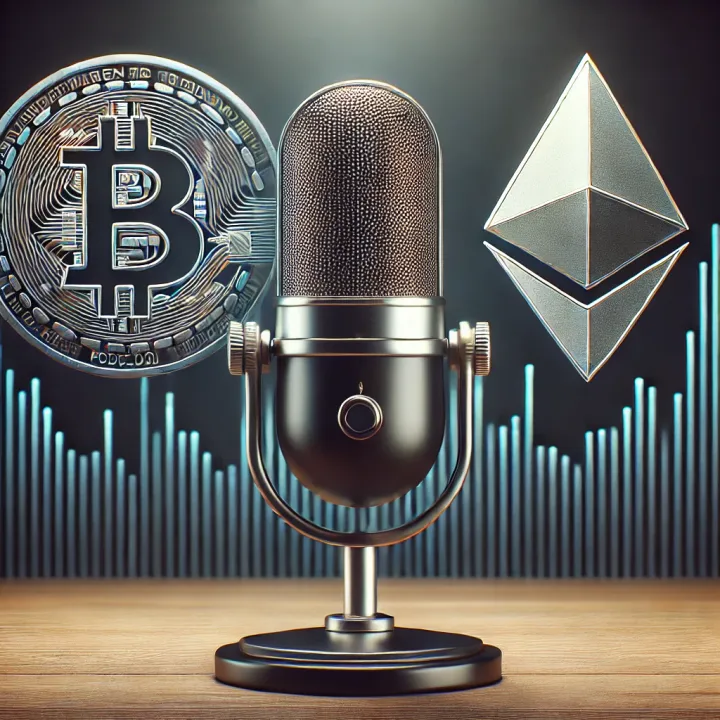Podcast: Free Speech Doesn't Exist
"... there is no objective, mechanical way to regulate speech..."

If you have any questions, comments, or suggestions - please contact StJohn Piano on Tela:
tela.app/id/stjohn_piano/7c51a6
Invest in Tela:
tela.network/invest
Join Tela Network and become a consultant:
telablog.com/how-to-use-tela-for-consulting
This article contains the script of Episode 4 of the Tela Network Podcast, which you can watch here:
Alternate link: Rumble
rumble.com/v4cjsdl-free-speech-doesnt-exist.html
Welcome to the Tela Network Podcast. My name is StJohn Piano, and I am a Blockchain Researcher at Tela Network.
The topic of this short episode is "Free Speech Doesn't Exist".
If you would like to join Tela Network and become a consultant, there will be a link to a guide in the description.
Background
My cousin, Guillermo Pablos Murphy, has finished running a study for his university thesis. He's doing International Relations at the University of Glasgow.
I'll link to his Tela consultant profile, and to the article about the study, in the description.
This study involved a discussion on a pseudonymous online forum. I was a participant. My group focused on the question:
How should digital platforms regulate their users’ speech ?
And this really got me thinking.
So I sat down, and thought through the problem, and this is what I came up with.
I'll read it out, and you can see what you think of it.

Problem
Question: How should digital networks regulate their users' speech ?
My response:
I'm with Wittgenstein on this: Language is a social game. All speech is contextual.
Just for a second, imagine being Twitter, and trying to figure out the intricacies of Indian caste politics, and trying to write code, or develop machine learning models, that can detect a caste-based insult that references a type of food that a particular caste tends to like.
It's very difficult to keep track of all the potential insults. It's probably impossible if you're not Indian. And who's to say that your decision will be correct i.e. that a certain sentence is an insult ? (Or not ?) If it is correct, what about in 5 years' time, in a different context ? Still correct ?
There is no objective standard against which speech can be measured, so there is no objective, mechanical way to regulate speech.
Rather than "regulate", let us instead say "police", because policing speech is actually what is happening.
Policing is an action. Actions can only be evaluated in relation to a goal.
The situation: You are at point A. You want to move to Point B. Does action X move you closer to point B ? Admittedly this is sometimes hard to know.
Analysis
I would say that the important underlying issue is: What is the goal of a specific digital network ?
Then you'll know how it should regulate its users' speech.
Right now, we have many digital networks whose goal, essentially, is to deliver as many advertisements as possible to as many people as possible in as short a time as possible.
This is their bread-and-butter. This is the reason that they exist.
All speech that gets in the way of this is crushed.
This is not entirely surprising.
Additionally, these networks have close relationships with institutions that can print unlimited money, have political interests, and are very willing to defend those interests.
This adds an extra layer: Speech that is against the political interests of closely connected powerful institutions is also crushed.
Again, not entirely surprising.
"My God, Jim, we've never seen anything like this before !"
"Well... really ?"
A lot of history looks very much like this.
Powerful groups exert strong influence on what can and can't be said.
The average person usually gets in serious trouble for publicly saying something that treads on powerful people's toes.
If he wanders off by himself into a forest somewhere, perhaps with a friend, then, and only then, he can enjoy true freedom of speech.
The unusual aspect of our current era that we claim, loudly, to have free speech, or at least we say that free speech is a good idea.
Results
So, what can we deduce ?
1) Digital networks will police any speech that is against their interests. This includes speech that makes their users very unhappy or uncomfortable, i.e. unhappy enough that they might leave the platform and take their purchasing power elsewhere.
2) A digital network will be part of a political coalition. The people who operate the network have to live somewhere, after all. The network will make an effort to police speech that is against the interests of that coalition.
Fundamentally, I usually try to follow the viewpoint of the Italian School of Politics. It's always a helpful mental reset, and writing this piece with their advice in mind was no exception.
If you like this content, please take a moment to share it with someone else who would also enjoy it. Personal referrals are the best way to help a channel to grow. You can also click the like button, or subscribe to receive new content.
Let's continue.
Conclusion
To ask where a digital network could go in the future, and how its approach to speech regulation could change over time, one must ask oneself:
What is its political formula ?
A political formula is the set of values that provides legitimacy. The effectiveness of any particular political formula will necessarily change over time as the social and technological environment changes.
A political formula encourages certain types of speech and discourages others.
I conclude that:
Free Speech Cannot Exist.
And Never Has.
So: My proposal: Analyse digital networks in terms of their political formulae, and their wider political coalitions.

Recommendation
If you don't like the speech codes of any of the current networks, start another. Think carefully about the political formula that you will follow and the wider coalition that will form around it. Think also about whether your time in history and the environment will allow for the development of this new political formula.
The process is very similar to being sufficiently annoyed with your government that you start a new one.
Of course, in the fullness of time, if you are successful, you will bring into being a new set of users, highly dissatisfied with your network's speech codes, and determined to start a new network of their own. Best of luck, I say.
Summary
So: My answer to the question "How should digital platforms regulate their users’ speech ?" is:
A digital network's political powerbase determines its speech codes. If you don't like it, start a new network and choose a new political powerbase.
I hope you found this interesting and insightful. Thank you for listening.
If you have any questions, comments, or suggestions, you can contact me on Tela. My contact link will be in the description.
Take care, and good luck.
Guillermo Pablos Murphy's consultant profile:
telablog.com/guillermo-pablos-murphy
Guillermo Pablos Murphy's article about his study:
telablog.com/the-politics-of-tomorrow
If you have any questions, comments, or suggestions - please contact StJohn Piano on Tela:
tela.app/id/stjohn_piano/7c51a6
Follow Tela Network on LinkedIn:
linkedin.com/company/tela-network
Follow Tela Network on Twitter:
twitter.com/tela_updates
Join Tela Network and become a consultant:
telablog.com/how-to-use-tela-for-consulting
Join the Tela Social channel on Telegram to get every new update:
t.me/tela_social
Follow Tela Network on Instagram:
instagram.com/tela_updates
Invest in Tela:
tela.network/invest


